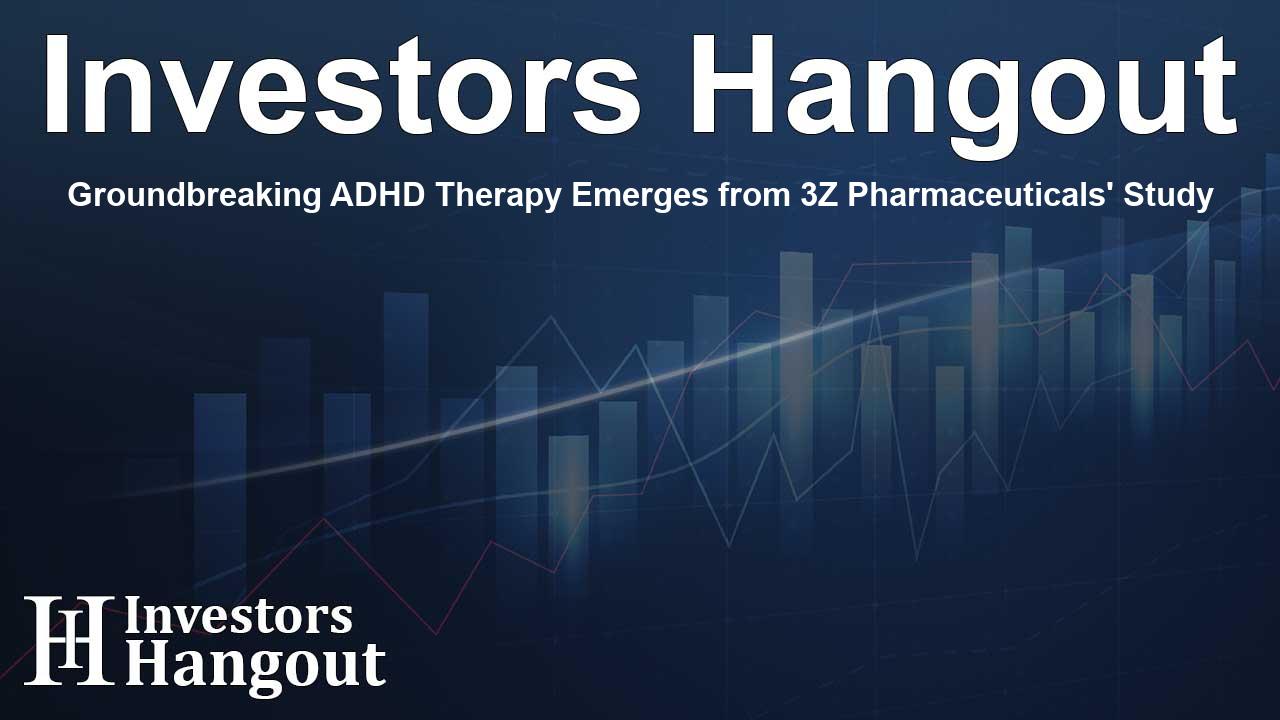Groundbreaking ADHD Therapy Emerges from 3Z Pharmaceuticals' Study

3Z Pharmaceuticals Unveils Significant Research on ADHD Treatment
3Z Pharmaceuticals has made an exciting announcement regarding its groundbreaking study published in Neuropsychopharmacology, which reveals compelling evidence for using calcium channel blocker amlodipine as a promising treatment option for Attention Deficit Hyperactivity Disorder (ADHD). This innovative research showcases the effectiveness of 3Z's advanced drug discovery methods, shedding light on new avenues for ADHD treatment that do not rely on stimulant medications.
The Challenge of ADHD Treatment
ADHD remains a widely recognized neurodevelopmental disorder, affecting countless individuals with limited treatment options currently available. Stimulant medications, such as methylphenidate, have been commonly prescribed and can benefit some patients. However, they often come with drawbacks, including side effects, the potential for misuse, and a significant portion of patients who do not respond to these treatments. 3Z Pharmaceuticals is dedicated to closing these gaps in care by developing novel, non-stimulant therapeutic options for ADHD.
Highlights from the Study
The new research conducted by 3Z Pharmaceuticals integrated various methodologies, including cross-species behavioral assays, Mendelian Randomization analysis, and human genetic data, to demonstrate the therapeutic potential of amlodipine. The study's key findings include:
Effective Behavioral Rescue in ADHD Models
In animal models, the use of amlodipine led to a significant reduction in hyperactivity in Spontaneously Hypertensive Rats. Additionally, it improved impulsivity in the adgrl3.1-/- zebrafish model, providing cross-species validation of its efficacy in treating ADHD symptoms.
Understanding Blood-Brain Barrier Interaction
Traditionally, it was assumed that amlodipine had poor penetration across the blood-brain barrier. However, this study revealed that the drug indeed crosses this barrier and modulates neuronal activation, contradicting previous beliefs about its brain accessibility.
Genetic Insights Strengthening Mechanistic Understanding
Using Mendelian Randomization, researchers linked the risk for ADHD to variations in genes associated with L-type calcium channels (LTCC), particularly CACNA1C, CACNB1, and CACNA2D3. Notably, these genes are directly influenced by amlodipine, further solidifying its potential as a therapy for ADHD.
Clinical Implications for Human Populations
Through the analysis of polygenic risk scores from the UK Biobank, findings indicated that individuals with a substantial genetic predisposition towards ADHD who were prescribed amlodipine reported lower ADHD-related symptoms, independent of the drug's effects on blood pressure.
Comments from Leadership
Dr. Karl Karlsson, a neuroscientist and CEO of 3Z Pharmaceuticals, shared insights on the significance of this study: "This research represents a paradigm shift in ADHD therapeutics. Our findings not only validate the mechanism impacted by amlodipine as a promising candidate for non-stimulant ADHD treatment but also underscore our high-throughput screening and genetic modeling approaches, performed in collaboration with biotx.ai. We are excited about this step forward in our mission to provide more effective treatments for ADHD that are better tolerated by patients."
Building on these promising results, 3Z Pharmaceuticals is progressing with the clinical development of a variant of this therapeutic approach, emphasizing its established safety profile combined with a targeted mechanism of action to potentially revolutionize ADHD treatment.
Frequently Asked Questions
What is the significance of the study published by 3Z Pharmaceuticals?
The study highlights the potential of amlodipine, a calcium channel blocker, as a non-stimulant treatment for ADHD, marking a significant advancement in ADHD therapeutics.
How does amlodipine work in treating ADHD?
Amlodipine appears to interact with neural mechanisms associated with ADHD, demonstrating positive effects on hyperactivity and impulsivity across various animal models.
Are there risks associated with using amlodipine as an ADHD treatment?
While amlodipine is traditionally prescribed for hypertension, its use in treating ADHD is still under research, and its safety profile and efficacy will be evaluated in ongoing clinical trials.
What alternative treatments are available for ADHD?
Current options primarily consist of stimulant medications and behavioral therapies. The introduction of non-stimulant alternatives like amlodipine may provide additional options for patients.
How is 3Z Pharmaceuticals innovating ADHD treatment?
3Z Pharmaceuticals utilizes advanced drug discovery and genetic modeling techniques to identify and develop alternative therapeutics for ADHD, focusing on mechanisms that do not rely on stimulants.
About The Author
Contact Hannah Lewis privately here. Or send an email with ATTN: Hannah Lewis as the subject to contact@investorshangout.com.
About Investors Hangout
Investors Hangout is a leading online stock forum for financial discussion and learning, offering a wide range of free tools and resources. It draws in traders of all levels, who exchange market knowledge, investigate trading tactics, and keep an eye on industry developments in real time. Featuring financial articles, stock message boards, quotes, charts, company profiles, and live news updates. Through cooperative learning and a wealth of informational resources, it helps users from novices creating their first portfolios to experts honing their techniques. Join Investors Hangout today: https://investorshangout.com/
The content of this article is based on factual, publicly available information and does not represent legal, financial, or investment advice. Investors Hangout does not offer financial advice, and the author is not a licensed financial advisor. Consult a qualified advisor before making any financial or investment decisions based on this article. This article should not be considered advice to purchase, sell, or hold any securities or other investments. If any of the material provided here is inaccurate, please contact us for corrections.
